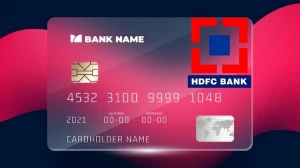
- Home »
- Credit Card »
- How Long Do Late Payments Stay on Credit Report? How to Remove Late Payments From Credit Reports?
How Long Do Late Payments Stay on Credit Report? How to Remove Late Payments From Credit Reports?
Late payments remain on your credit report for 7 years, but you can explore options like goodwill letters, disputes, or debt payments to remove them.
by Surya
Published Aug 08, 2023 | Updated Sep 15, 2023 | 📖 12 min read
On This Page
- How Long Do Late Payments Stay on Credit Report?
- How to Remove Late Payments From Credit Reports?
- Does Late Payment Affect Credit Score?
- What is a Late Payment?
- How Much Will My Credit Score Increase if Late Payments Are Removed?
- How to Avoid Late Payments?
- Why Should You Avoid Making Late Payments?
- At What Point is a Payment Recorded as Late on Credit Reports?
- How Can I Improve My Credit?
How Long Do Late Payments Stay on Credit Report?
When a payment is missed and later rectified, the late payment notation will eventually be erased after seven years. This holds true for consecutive missed payments as well. Whether an account remains open or is closed, the timeline for removal remains consistent.
For instance, consider paying off and closing a credit card. While the account closure might persist for a decade on your credit report, any late payment history associated with the card will vanish seven years from the date of the missed payment. Despite this, the remaining account details can continue to positively impact your credit.
Should a payment lapse and remain unresolved, the initial delinquency date is marked by the late payment. Continued missed payments might lead to the creditor declaring the account as charged off, ultimately resulting in it being sent to collections. Consequently, your credit report could display both the original account and a separate collections entry.
In scenarios where account closure follows missed payments, the credit bureau will eventually remove the entire account and any related collection records. This removal process occurs seven years after the original delinquency date, which corresponds to the first instance of late payment within the series.
How to Remove Late Payments From Credit Reports?
If you find a late payment entry on your credit report and are concerned about its impact on your loan prospects, you have several methods to potentially have it removed:
- Good-Will Adjustment Letter: Draft a letter to your creditor explaining the reasons for the late payment, known as a goodwill letter. While this approach may lead to removal if you had a valid reason, it's not guaranteed due to reporting accuracy requirements. Alternatively, you can contact your creditor directly to address the issue before it appears on your report.
- Pay-for-Delete Letter: The "pay-for-delete" method, offered by some debt collectors, may remove a collections account if you pay it off. However, this approach may not work for late payments, as creditors are obligated to report accurate information. Pay-for-delete generally targets collections accounts, not original late payments.
- File a Dispute: If you suspect an error on your credit report, you can file a dispute with the creditor or the credit bureau that received the incorrect information. The creditor has 30 days to investigate and update the information if found to be incorrect. If disputing with multiple credit bureaus, each one should be notified, and the process generally takes around 30 days for resolution. Keep in mind that if the late payment information is accurate, it may not be removed.
while these methods may help address inaccurate late payment entries, it's essential to maintain good payment habits to prevent future late payments and maintain a positive credit history.
Does Late Payment Affect Credit Score?
Late payments can significantly harm your credit score and overall creditworthiness. When a payment is not made on time and becomes more than 30 days overdue, it can lead to a notable reduction in your credit score. In some cases, this decrease can be as substantial as 100 points or even more. However, the precise extent of this impact varies based on factors such as your existing credit history and your current credit score.
These late payments, once recorded, linger on your credit report for an extended period – typically up to 7 years from the point at which they were initially reported as delinquent, which is 30 or more days past the due date. While this may sound daunting, it's important to note that the adverse effects of these late payments on your credit score gradually lessen as time passes. Over the course of those 7 years, the impact becomes less severe, allowing you the opportunity to rebuild and improve your creditworthiness over time.
The severity of the impact of late payments on your credit score also depends on your overall credit history. If you've maintained a strong record of on-time payments and responsible credit management, a single late payment might not have as drastic an effect as it would for someone with a less favorable credit history. Conversely, if you've had previous credit issues, a late payment can exacerbate your credit challenges.
To mitigate the negative consequences of late payments and uphold a healthy credit profile, making timely payments is essential. Consistently meeting your payment deadlines demonstrates your responsible financial behavior and contributes positively to your credit score. Staying organized and setting up reminders for bill due dates can help you avoid inadvertently missing payments.
Late payments have the potential to significantly undermine your credit score, making it harder to secure favorable lending terms, such as loans or credit cards, in the future. While the impact of late payments is most pronounced in the immediate aftermath, their influence wanes over time. To safeguard your creditworthiness, prioritize prompt and regular payments to maintain a positive credit history and overall financial well-being.
What is a Late Payment?
A late payment occurs when you fail to meet the minimum payment required by a bill's specified due date. Certain creditors provide a grace period, allowing you a brief period – spanning a few days or weeks – to settle your overdue bill without incurring a penalty. However, different creditors operate under distinct policies, and in some cases, even a minor delay of just one day could result in both a late payment fee and the forfeiture of advantageous perks, like a promotional interest rate on a credit card.
It's important to be aware of the specific terms and conditions set by each creditor regarding late payments. While some may extend a lenient window for payment without adverse consequences, others might implement stringent measures that swiftly trigger penalties for even the slightest delay. Being informed about these variations can empower you to effectively manage your financial obligations and prevent potential fees or loss of benefits.
How Much Will My Credit Score Increase if Late Payments Are Removed?
Late payments can wield a substantial influence on your credit score. When you find yourself falling several weeks or months behind on payments, resulting in an account default, your credit scores can experience a significant decline. However, akin to other adverse records, defaults are not etched onto your credit profile indefinitely. The duration for which they persist hinges on various factors, and the removal of default can potentially trigger an upswing in your credit scores.
As stated in some sources adeptly managing your credit balances by maintaining them at levels below 10-15% of your credit limits can serve as a strategy to optimize your credit scores. An illustrative case involves an individual who diligently paid down their credit card debt to a balance of zero, simultaneously addressing and eliminating late payment records. Remarkably, this proactive approach resulted in an impressive 84-point surge in their credit score within a mere month.
It's important to bear in mind, however, that the removal of a late payment or the aging off of negative records may not automatically translate to a linear increase of 100 points in your credit score. Although a late payment could have initially led to a substantial score reduction, its impact tends to evolve over time. The intricacies of credit scoring entail that the effect of a late payment becomes less pronounced as it recedes into the past.
Ultimately, while the removal of defaults and meticulous credit management can contribute to credit score improvement, the actual degree of score enhancement is contingent upon an array of interwoven factors that shape your unique credit history.
How to Avoid Late Payments?
Effectively managing your bill payments involves several strategies to prevent accidental oversights and potential financial pitfalls. By keeping a vigilant eye on your bills' due dates and implementing automated payment setups, you can reduce the risk of missing payments inadvertently. It's crucial, however, to ensure that your accounts maintain sufficient funds to prevent the possibility of overdrawing.
Should you find yourself facing the prospect of missing a payment due to financial constraints, taking proactive measures can prove beneficial. Initiating communication with your creditors prior to the due date can yield positive outcomes. They might extend a temporary hardship plan, granting you the flexibility to defer or reduce your payment obligations for a specified period.
Exploring avenues to curtail other expenses can also alleviate financial strain. For instance, reaching out to your utility providers to inquire about available assistance programs could potentially unlock opportunities for cost savings. These newfound savings could then be allocated toward fulfilling other financial obligations.
Furthermore, seeking guidance from a credit counselor can be advantageous, especially if you're grappling with credit card debt. A credit counselor possesses the expertise to assist you in formulating a comprehensive debt management plan (DMP).
This plan could encompass negotiations with creditors to secure lowered interest rates, monthly payment adjustments, and even the potential waiver of fees. Notably, a credit counselor might facilitate the process of bringing past-due credit card accounts up to date, all without necessitating a substantial upfront payment.
In essence, a combination of prudent bill tracking, proactive communication with creditors, and exploration of cost-saving opportunities, alongside the expert guidance of a credit counselor, can collectively serve to safeguard your financial stability and facilitate effective debt management.
Why Should You Avoid Making Late Payments?
Failing to make timely payments to a credit card issuer can lead to both immediate and long-term adverse consequences:
Accrual of Late Fees: A credit card issuer has the authority to impose late fees for even a single missed credit card payment. Subsequent missed payments may result in escalated late fees, compounding the financial burden.
The incurrence of Interest Charges: Unpaid balances might incur interest charges until the outstanding amount is settled in full, potentially adding to your overall debt.
Potential Interest Rate Increase: Should a payment be delayed by at least 60 days, the card issuer could opt to elevate the interest rates on your balances. This adjustment could lead to elevated interest charges on the unpaid amount, thereby exacerbating your balance accumulation. However, it's important to verify if your credit card company enforces a penalty APR for late payments.
Impact on Credit Scores: The precise influence of a late payment on your credit scores cannot be definitively predicted. However, major credit scoring entities like FICO® and VantageScore® assign considerable importance to payment history. FICO® evaluates late payments based on factors such as their severity, frequency, and recency. Consequently, the impact of a late payment on your credit score can vary depending on your existing credit score, with greater repercussions if you have an excellent score. Consistently missing payments or having late payments across multiple accounts can exacerbate the negative effects on your credit.
Potential Account Charge-Off: When a credit card account remains delinquent for a period of 180 days, the credit card issuer is mandated to close the account and declare it as charged off. While this signifies a financial loss for the issuer, the debt itself remains outstanding. The repercussions of a charge-off on your credit report and how it is perceived by other creditors can differ. Typically, a charge-off is documented on your credit report for up to seven years.
In essence, the ramifications of late payments extend beyond immediate financial penalties, encompassing potential interest rate hikes, credit score depreciation, and even the prospect of account charge-off. Being proactive in managing your credit obligations and ensuring prompt payments can safeguard your financial standing and creditworthi
At What Point is a Payment Recorded as Late on Credit Reports?
According to regulations outlined by federal law, credit reporting agencies are prohibited from recording a payment as late until a minimum of 30 days has elapsed beyond its due date. If a bill is inadvertently overlooked and subsequently settled before this 30-day threshold, your credit standing remains unscathed, although a late fee may still be incurred.
The contents of your credit reports hold significant importance, serving as the foundation for calculating your credit scores. Notably, your payment history constitutes a pivotal component in the determination of these scores. As such, the repercussions of surpassing the 30-day overdue mark can be notably detrimental to your creditworthiness. Therefore, ensuring that payments are made within this window is essential for preserving a positive credit profile
How Can I Improve My Credit?
If your credit history carries other adverse elements like bankruptcies or collection accounts, the process of rejuvenating your credit scores may require additional time, yet it remains an achievable endeavor. Here are actionable steps you can take to embark on a path of recovery from past credit challenges:
Thorough Credit Report Examination: Obtain complimentary copies of your credit reports from all three major credit reporting agencies via AnnualCreditReport.com. Scrutinize these reports meticulously, identifying any accounts reflecting delinquencies or unresolved balances.
Rectify Past Due Accounts: Swiftly address any accounts that exhibit past due status on your credit report. Bringing these accounts to a current status is paramount. Some modern scoring models exclude settled collections from score calculations, implying that settling a collection account could yield an immediate positive impact on your scores.
Reduce Credit Card Balances: Credit utilization, or the proportion of credit card balances to credit limits, ranks as the second most influential credit scoring factor, trailing only payment history. Prioritize the reduction of high balances on credit cards. Striving for a credit utilization rate not exceeding 10 percent is considered optimal.
Access Your Experian Credit Score: Obtain your credit score from Experian, accompanied by a breakdown of the most prominent risk factors affecting your score. This valuable insight guides you in pinpointing specific aspects to target for improvement, thus augmenting your scores.
Leverage Experian Boost®ø: Enroll in Experian Boost®, a service facilitating the inclusion of timely utility, cellphone, and streaming service payments onto your credit report. This initiative can swiftly bolster your Experian credit score.
By embarking on these measures, you can proactively navigate the journey to credit score recovery, even in the presence of preceding credit setbacks. Remember, while the process may necessitate time and effort, the potential for credit score enhancement and financial well-being is well within reach.
How Long Do Late Payments Stay on Credit Report-FAQs
1. What is a late payment?
A late payment refers to a situation where you fail to submit the required minimum payment for a bill, loan, or credit card by its designated due date.
2. How does a late payment occur?
A late payment occurs when you miss the deadline for making a required payment, resulting in the payment being submitted after the due date has passed.
3. What are the consequences of a late payment?
Late payments can lead to various negative outcomes, including late fees, potential interest charges, an increase in interest rates, and a detrimental impact on your credit score.
4. How does a late payment affect my credit score?
Late payments can significantly lower your credit score, particularly if they are reported to credit bureaus. The severity of the impact depends on factors like the recency, frequency, and severity of the late payment, as well as your overall credit history.
5. Can I avoid late payment penalties?
Yes, you can avoid late payment penalties by ensuring that you make payments on time. Setting up reminders, using automatic payments, and regularly monitoring your due dates can help prevent late payments and the associated penalties.




